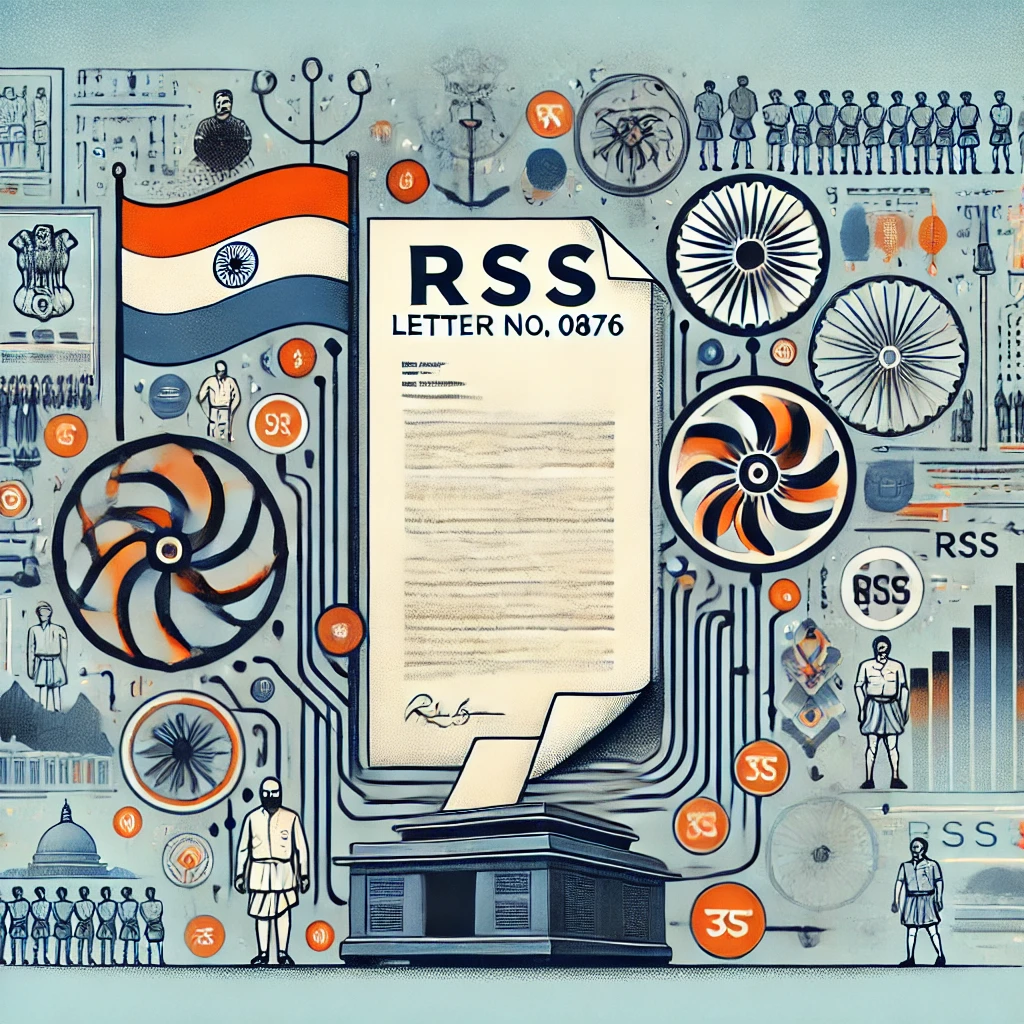RSS Letter No. 0876, often cited in discussions surrounding the Rashtriya Swayamsevak Sangh (RSS), stands as a pivotal document in understanding the organization’s direction, ideologies, and operational strategies during a crucial period. This article aims to dissect and understand the nuances of this significant letter, exploring its background, themes, and the broader impact it has had both within and outside the RSS.
Understanding RSS Letter No. 0876
Before delving into the specific contents and implications of the letter, it is crucial to set the stage by providing some background on the RSS itself. Established in 1925, the RSS is a right-wing, Hindu-nationalist, volunteer organization that has played a significant role in the sociopolitical landscape of India.
Background and Context
RSS Letter No. 0876 was issued during a period of intense organizational introspection and strategic reorientation. The letter addresses several internal and external challenges facing the organization, including its approach to expanding its base and enhancing its ideological clarity among its members.
Key Themes
Organizational Discipline
The letter emphasizes the need for rigorous discipline among the ranks of the RSS, outlining methods and practices that ensure the smooth operation and uniformity of purpose within the organization. This section of the letter is critical in understanding how the RSS maintains its influence over its members and coordinates its activities across India.
Ideological Clarity
One of the core focuses of RSS Letter No. 0876 is on sharpening and defining the ideological stance of the organization. It lays out a framework for inculcating a robust ideological foundation in its members, which is seen as essential for the sustenance of its long-term objectives.
Political Challenges
The letter candidly addresses the various political challenges that the RSS faced at the time of its writing, including opposition from various quarters of the Indian political spectrum. It outlines strategies for engaging with or countering these political forces, highlighting the RSS’s proactive stance in navigating the complex political environment of India.
Expansion and Outreach
Significant portions of the letter are dedicated to discussing the strategies for outreach and expansion. This includes the establishment of new shakhas (branches) and the engagement with different sections of society to broaden the RSS’s appeal and influence.
The Language and Tone
The language used in RSS Letter No. 0876 is formal yet impassioned, reflecting the seriousness of the issues at hand and the urgency of addressing them. The tone is instructive and often directive, indicative of the hierarchical nature of the organization.
Impact and Legacy
Influence on RSS Policies
The directives and themes outlined in RSS Letter No. 0876 have had a lasting impact on the policies and operational strategies of the RSS. Its influence is evident in the subsequent decisions and the overall trajectory of the organization in the years following its issuance.
Broader Societal Impact
The impact of the letter extends beyond the confines of the RSS, affecting broader societal attitudes and interactions in regions where the RSS is active. The expansion strategies and ideological consolidation efforts have contributed to shaping the socio-political discourse in India.
Controversies and Public Reaction
Controversial Content
Certain sections of the letter, particularly those dealing with political strategies and ideological assertions, have sparked controversy. Critics argue that these sections reveal a divisive agenda, while supporters defend them as necessary for the preservation of cultural identity.
Public and Political Fallout
The release and circulation of the letter have led to varied reactions from the public and political entities. These reactions range from outright condemnation to staunch support, highlighting the polarized views on the RSS’s role and influence in India.
Conclusion
RSS Letter No. 0876 remains a crucial document for anyone seeking to understand the inner workings and strategic direction of the Rashtriya Swayamsevak Sangh. Its detailed examination reveals not only the organizational priorities and challenges at the time but also provides insights into the enduring influence of the RSS in shaping political and social narratives in contemporary India. The letter is a window into the dynamic and often contentious role that the RSS continues to play in the socio-political fabric of the nation.
FAQs About RSS Letter No. 0876
What is RSS Letter No. 0876?
RSS Letter No. 0876 is a document issued by the Rashtriya Swayamsevak Sangh (RSS), a right-wing, Hindu-nationalist organization in India. The letter addresses various operational, ideological, and strategic aspects of the organization.
When was RSS Letter No. 0876 released?
The exact date of the release of RSS Letter No. 0876 is not commonly detailed in public records, as RSS communications are often internal and specific to organizational matters.
What are the main themes of RSS Letter No. 0876?
The letter focuses on several key areas such as organizational discipline, ideological clarity, addressing political challenges, and strategies for expansion and outreach.
How has RSS Letter No. 0876 impacted the RSS?
The letter has significantly influenced the policies and strategic direction of the RSS, emphasizing a structured approach to expansion and a clear ideological framework for its members.
Why has RSS Letter No. 0876 been controversial?
The letter has sparked controversy due to its sections on political strategies and ideological positions, which critics argue promote a divisive agenda. This has led to varied public and political reactions.
How does RSS Letter No. 0876 affect the broader society?
The strategies and ideologies promoted in the letter have implications beyond the RSS, influencing socio-political attitudes and interactions in areas where the organization is active.


